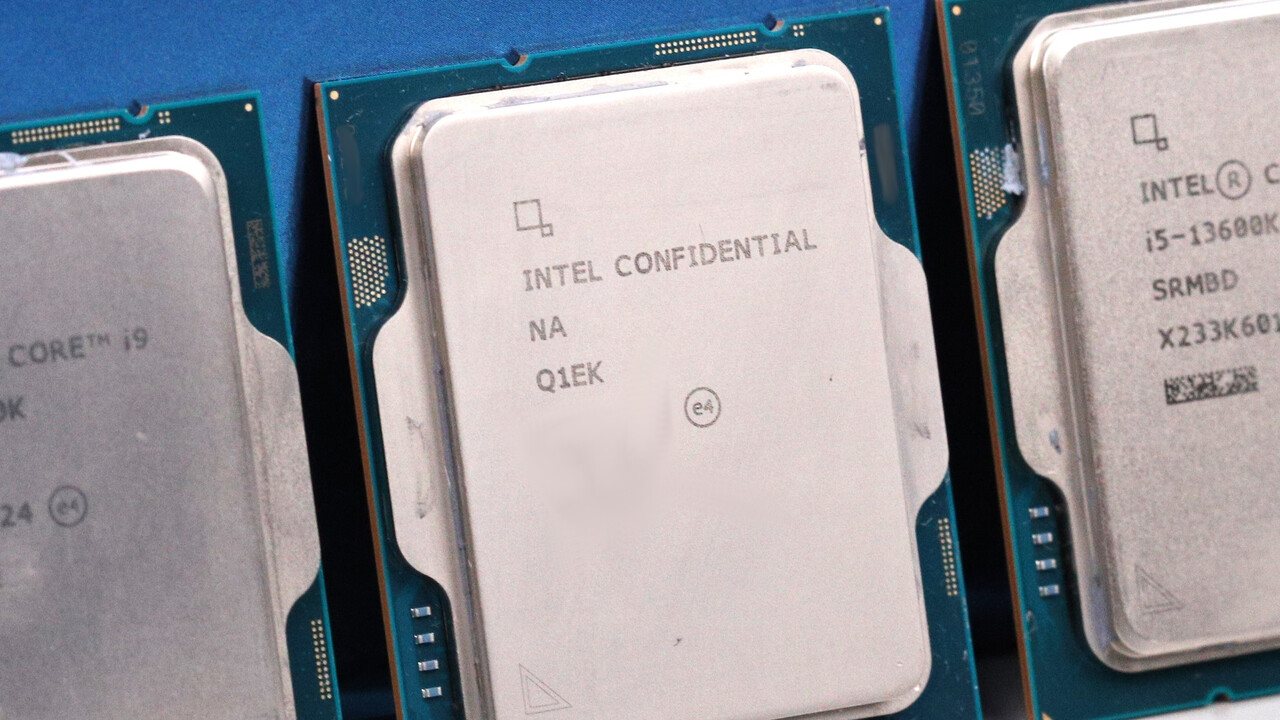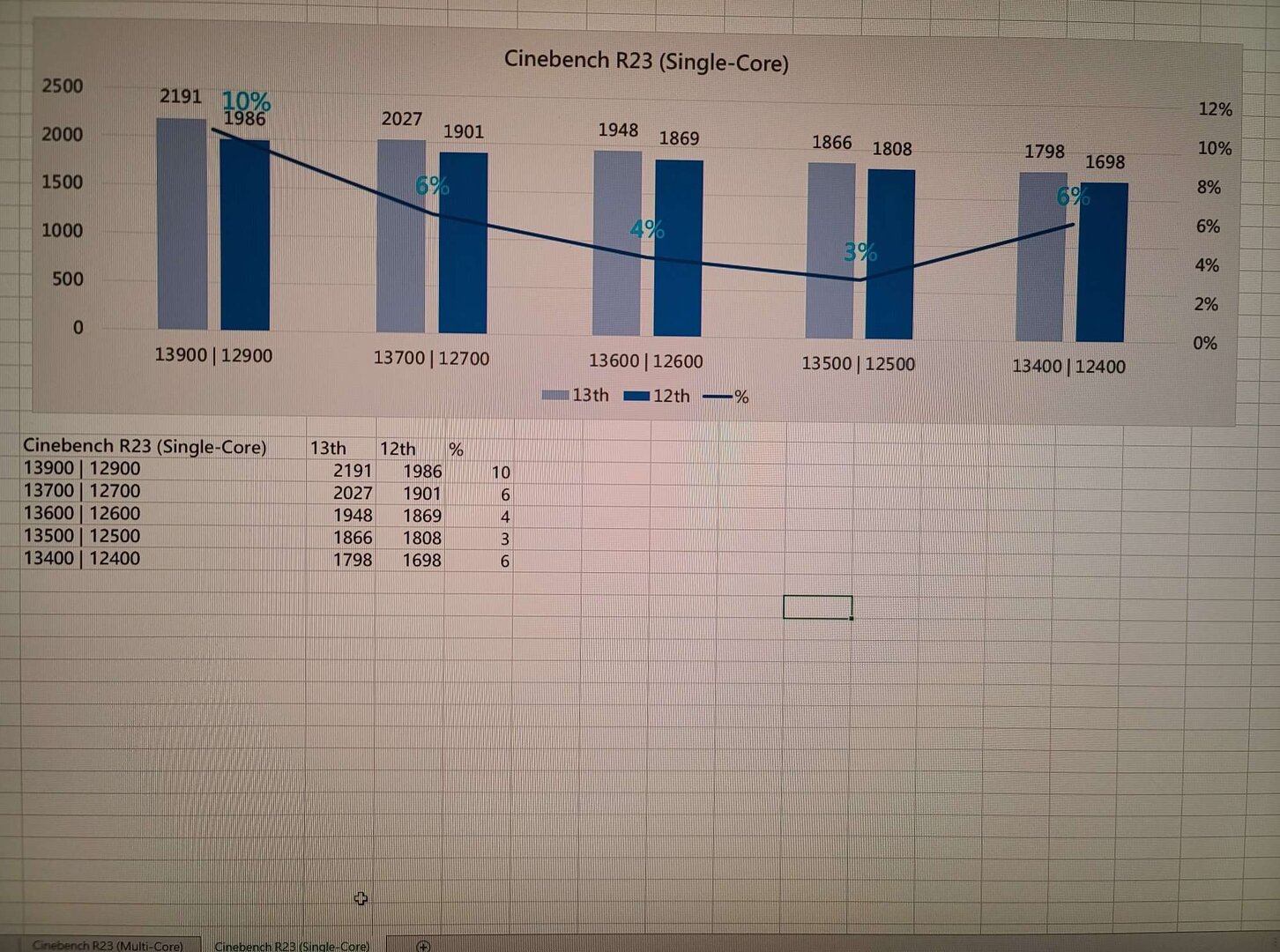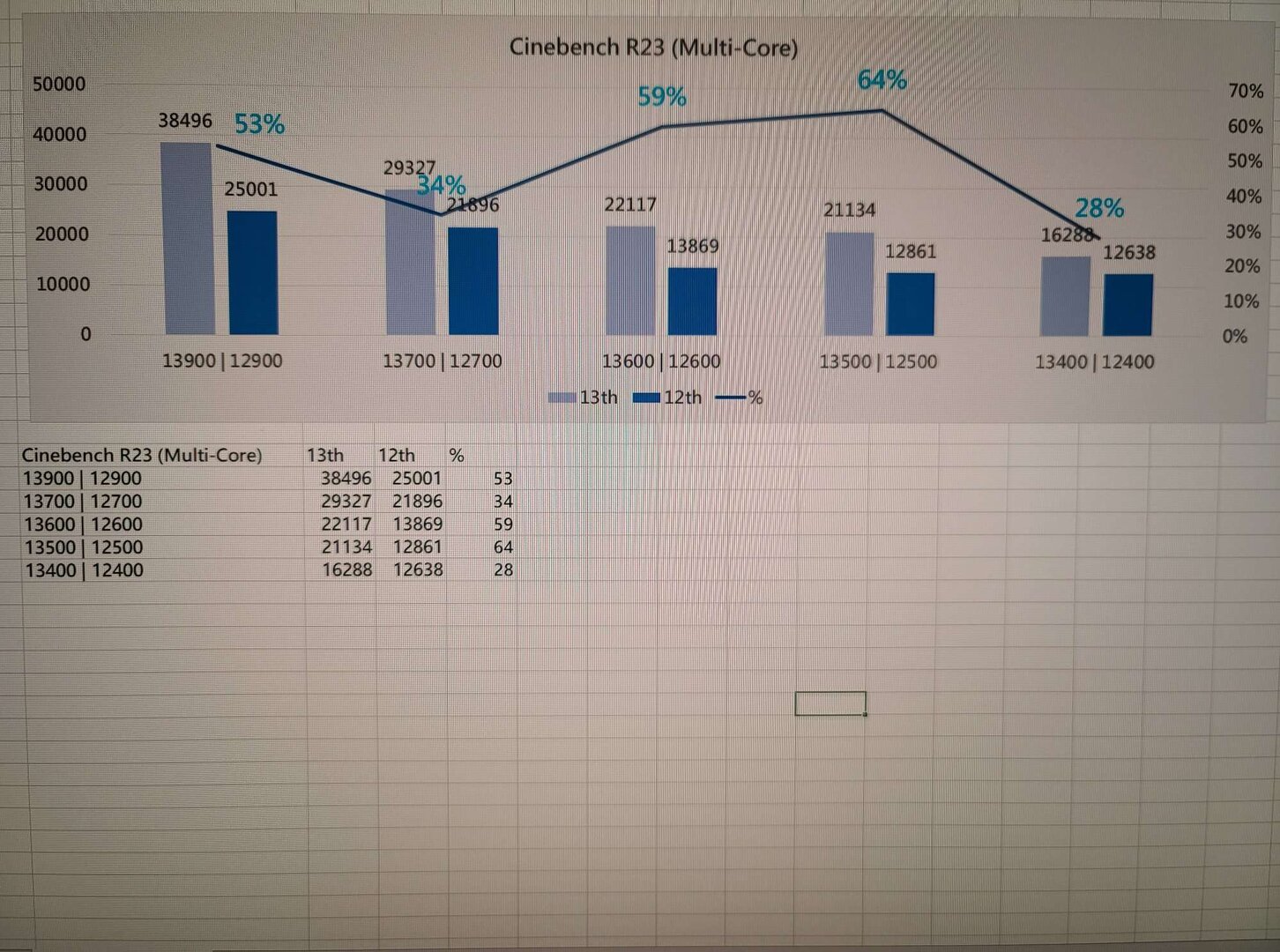

Numerous new core 13th generation Intel processors are expected early next year. The unconfirmed benchmarks give a preview of the performance increase of the “Non-K” models from the Core i5-13400 to the Core i9-13900 compared to the respective predecessor.
on twitter has chi11eddog Reference values and graphs released, which is said to have originated in board partner circles. The results are shown in the Cinebench 23 single and multi-core test.
Unsurprisingly, there aren’t any huge increases in the single-core section, which the Core i-13000 tops out at 3 percent to 10 percent more points than its 12th-gen predecessors.
In multicore tests, on the other hand, the jumps are huge. Thanks to more cores, the new generation increases by between 28% and 64%, depending on the model. In view of similar observations with the previously released Core i9-13900K, i7-13700K and i5-13600K (test), the values seem quite realistic.
While in the single-core load, the Core i9-13900 reveals the biggest advantage with 10 percent more points than the Core i9-12900, in the multi-core scenario it’s the Core i5-13500 over the Core i5. -12500 increased by a full 64 percent.
Results match key data*
According to specifications that have yet to be officially confirmed (see table), the Core i9-13900 clocks in at 500 MHz faster at its peak and is therefore around 10 percent higher than its predecessor, which would well explain the single core drive.
The Core i5-13500 is said to offer 67 percent more threads (20 instead of 12) than its older counterpart, which has yet to do without cores for efficiency. Again, this would fit the results almost perfectly. Ultimately though, the exact frequencies of the turbo clock in particular remain unclear.
All Core i-13000s without the “K” mentioned must be in the 65-watt TDP class and will be officially unveiled alongside the new B760 motherboards on January 3 at CES 2023.

